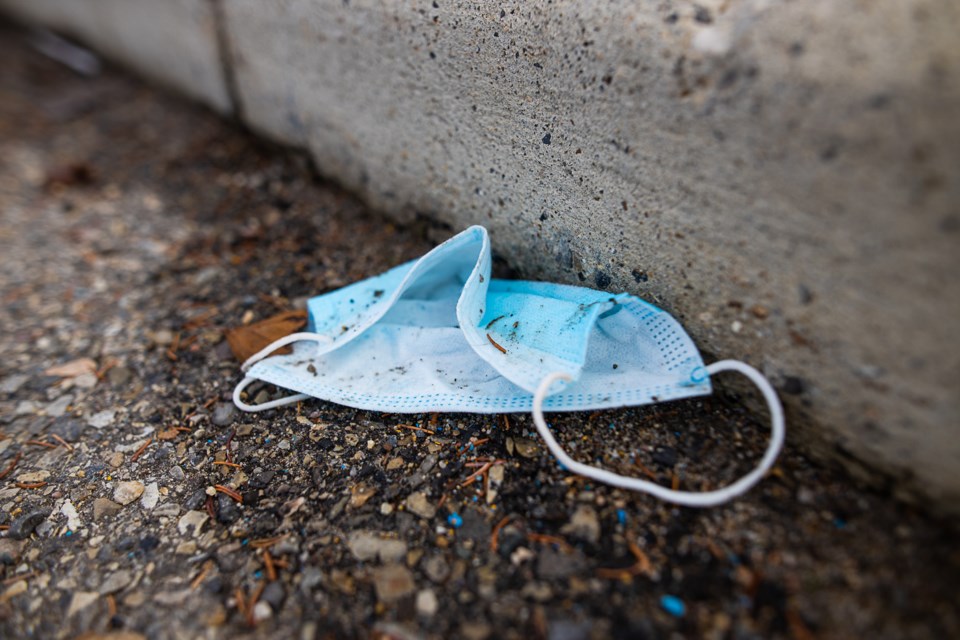With piles of used masks and more household waste at the curb, York Region is facing new waste challenges brought about by the pandemic.
The region is still grappling with approximately 10 more kilograms per capita in curbside waste generation compared to pre-pandemic levels. Masks going into recycling versus waste is also an issue the region has tried to address.
Residential waste was on a decline before the pandemic came into force. The region had made progress, but it continues to face waste challenge with more residents working from home, according to director of environmental promotion and protection Laura McDowell.
“We got to be able to figure out what is going to be the long-term impact of changing these behaviours now.”
The region saw garbage rise from about 80 kilograms per capita of waste in 2019 to 90 in 2020, with a similar number for 2021, according to McDowell. Green bin waste similarly rose from about 85 to about 90 kg/capita. The region’s 2031 target is to get the green bin figure to 71 kg/capita and regular waste to 66 kg/capita.
The region is a leader in waste diversion, at approximately 66 per cent rate in 2020, along with a 93 per cent diversion from landfill rate using an energy-to-waste facility they have in partnership with Durham. But McDowell said the additional garbage is still a pressure point, and they want to continue efforts to reduce waste through recycling or reuse.
“Really providing the public with the tools and the information (to) reduce some of the consumption, save money, save the environment at the same time … With a lot of people working from home now, it has upset the waste management system. We have got work ahead of us,” she said.
McDowell said it is not necessarily a matter of more waste overall, but how it is shifting. Waste at businesses or industries is handled by private contracts. She said though there is an upside in that municipal waste collection tends to be much better at diversion than private ones, there are costs to bear.
The additional waste amounted to an added $2.2 million in 2021, within the department's $51.7 million net operating budget.
“The downside is certainly the pressure on the tax base,” she said.
As for masks, York Region made a concerted effort to address folks trying to recycle them in 2020. Medical masks are not recyclable, despite efforts from a local company to produce a paper version.
McDowell said their sorting facility would see about 117 masks every 10-minute interval at peak in 2020. That number now fluctuates between 50 and 60 every 10 minutes.
“There's more work to do with respect to education and proper disposal of these masks,” she said. “But we have done a lot of work with our local municipal partners to really ensure the public has the right information as far as where they should be disposed of.”
The region does have several waste reduction initiatives, namely a plan to create a more circular and environmentally friendly economy.
McDowell further said there is also hope with producers taking over recycling from municipalities by 2025, reducing the burden on them.
Until then, addressing the pandemic impact on waste is a matter of public engagement.
“We'll continue to work with our local municipal partners and the public,” she said. “Our public does a really good job. We wouldn’t be leaders (in waste diversion) if they weren’t doing the right things on the curb.”
